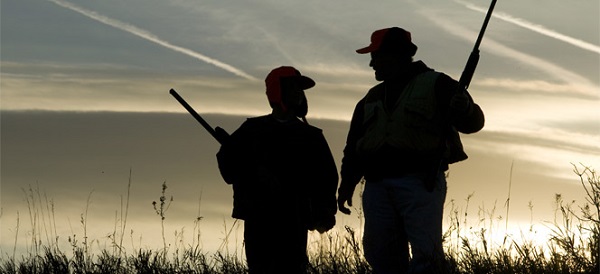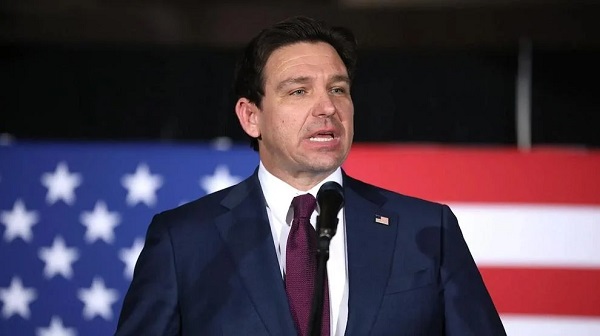Justice
Ottawa’s gun buyback is rightly falling apart

From the Canadian Taxpayers Federation
Author: Gage Haubrich
Prime Minister Justin Trudeau’s gun ban and buyback policy is running out of steam.
And it hasn’t even left the station.
The buyback is broken. Law-abiding firearms owners don’t want to lose their guns. It doesn’t go far enough for gun-control advocates. And taxpayers don’t want to pick up the massive bill.
“It’s a waste of Canadian’s money,” said a spokesperson for PolyRemembers, a prominent gun-control advocacy group. “We are not reducing the risk level. It’s just for appearances.”
Instead, PolyRemembers wants the government to go further and ban even more models of firearms.
But if the recommendation is to ban more guns, the solution brings a lot more problems.
And Ottawa already tried that. The federal government tried to dramatically expand the list of guns banned with committee amendments. One of the additions included the semi-automatic SKS rifle, of which there are estimated to be more than 500,000 in Canada.
After the introduction of amendments to Bill C-21 that would have seen many common hunting rifles banned, the Assembly of First Nations passed an emergency resolution opposing the ban.
“It’s a tool,” said Kitigan Zibi Chief Dylan Whiteduck about the list of rifles to be banned. “It’s not a weapon.”
“No government has a right to take that away from us and regulate that,” said said Federation of Sovereign Indigenous Nations Vice-Chief Heather Bear. “That is our job as mothers, grandmothers, grandfathers, and hunters
The government backed down and removed the amendments.
Expanding the buyback to include even more firearms would mean more resistance from current firearms owners and a larger cost to buyback even more guns.
The government says the aim of the ban is to keep Canadians safe, but the evidence shows that it’s unlikely to help, even if it was expanded to include more firearms.
The federal government announced a ban on 1,500 types of what it called “assault-style” firearms in May 2020. It promised to provide “fair compensation” to gun owners whose firearms it confiscates.
New Zealand tried a gun ban and buyback program that was more far reaching than Ottawa’s, banning almost all semi-automatic firearms, not only so-called “assault style” rifles.
It didn’t work.
During the decade before the buyback, according to data from the New Zealand Police, violent firearm offences averaged 932 a year in New Zealand. In 2019, the year of the buyback, there were 1,142 offences. In 2022, the number of offences was 1,444.
New Zealand’s buyback wasn’t cheap either. Costs to administer the program were more than double the initial estimates.
Experts in Canada have seen enough to know the policy is a failure.
The National Police Federation, the union that represents the RCMP, says Ottawa’s buyback, “diverts extremely important personnel, resources, and funding away from addressing the more immediate and growing threat of criminal use of illegal firearms.”
And it’s a lot of funding and resources.
In total, estimates show that Trudeau’s scheme could cost taxpayers up to $756 million to buyback the guns, according to the Parliamentary Budget Officer. That doesn’t even include the administration costs – it’s just the cost of compensating firearms owners.
Instead of taking away firearms from Canadians, that’s enough money to pay for the average salaries of 1,000 police officers for more than seven years.
The government has a history of ballooning costs for these types of programs. The government initially promised the long-gun registry would cost taxpayers only $2 million. The final tab was over $2 billion. The registry was scrapped by the Harper government and stayed scrapped under the Trudeau government.
If those were the overruns just to register the guns, how much money would the federal government waste trying to confiscate them?
Ottawa’s buyback has already cost taxpayers $67 million since 2020. Not a single gun has been “bought back” yet.
It’s time for Ottawa to cancel its gun ban and buyback. Because right now, all it looks set to do is cost taxpayers a boatload of money without making Canadians safer.
COVID-19
University of Colorado will pay $10 million to staff, students for trying to force them to take COVID shots

From LifeSiteNews
The University of Colorado Anschutz School of Medicine caused ‘life-altering damage’ to Catholics and other religious groups by denying them exemptions to its COVID shot mandate, and now the school must pay a hefty settlement.
The University of Colorado’s Anschutz School of Medicine must pay more than $10.3 million to 18 plaintiffs it attempted to force into taking COVID-19 shots despite religious objections, in a settlement announced by the religious liberty law firm the Thomas More Society.
As previously covered by LifeSiteNews, in April 2021, the University of Colorado (UC) announced its requirement that all staff and students receive COVID jabs, leaving specific policy details to individual campuses. On September 1, 2021, it enforced an updated policy stating that “religious exemption may be submitted based on a person’s religious belief whose teachings are opposed to all immunizations,” but required not only a written explanation why one’s “sincerely held religious belief, practice of observance prevents them” from taking the jabs, but also whether they “had an influenza or other vaccine in the past.”
On September 24, the policy was revised to stating that “religious accommodation may be granted based on an employee’s religious beliefs,” but “will not be granted if the accommodation would unduly burden the health and safety of other Individuals, patients, or the campus community.”
In practice, the school denied religious exemptions to Catholic, Buddhist, Eastern Orthodox, Evangelical, Protestant, and other applicants, most represented by Thomas More in a lawsuit contending that administrators “rejected any application for a religious exemption unless an applicant could convince the Administration that her religion ‘teaches (them) and all other adherents that immunizations are forbidden under all circumstances.’”
The UC system dropped the mandate in May 2023, but the harm had been done to those denied exemptions while it was in effect, including unpaid leave, eventual firing, being forced into remote work, and pay cuts.
In May 2024, a three-judge panel of the U.S. Tenth Circuit Court of Appeals rebuked the school for denying the accommodations. Writing for the majority, Judge Allison Eid found that a “government employer may not punish some employees, but not others, for the same activity, due only to differences in the employee’s religious beliefs.”
Now, Thomas More announces that year-long settlement negotiations have finally secured the aforementioned hefty settlement for their clients, covering damages, tuition costs, and attorney’s fees. It also ensured the UC will agree to allow and consider religious accommodation requests on an equal basis to medical exemption requests and abstain from probing the validity of applicants’ religious beliefs in the future.
“No amount of compensation or course-correction can make up for the life-altering damage Chancellor Elliman and Anschutz inflicted on the plaintiffs and so many others throughout this case, who felt forced to succumb to a manifestly irrational mandate,” declared senior Thomas More attorney Michael McHale. “At great, and sometimes career-ending, costs, our heroic clients fought for the First Amendment freedoms of all Americans who were put to the unconscionable choice of their livelihoods or their faith during what Justice Gorsuch has rightly declared one of ‘the greatest intrusion[s] on civil liberties in the peacetime history of this country.’ We are confident our clients’ long-overdue victory indeed confirms, despite the tyrannical efforts of many, that our shared constitutional right to religious liberty endures.”
On top of the numerous serious adverse medical events that have been linked to the COVID shots and their demonstrated ineffectiveness at reducing symptoms or transmission of the virus, many religious and pro-life Americans also object to the shots on moral grounds, due to the ethics of how they were developed.
According to a detailed overview by the pro-life Charlotte Lozier Institute, Pfizer, Moderna, and Johnson & Johnson all used fetal cells derived from aborted babies during their COVID shots’ testing phase; and Johnson & Johnson also used the cells during the design and development and production phases. The American Association for the Advancement of Science’s journal Science and even the left-wing “fact-checking” outlet Snopes have also admitted the shots’ abortion connection, which gives many a moral aversion to associating with them.
Catholic World Report notes that similarly large sums have been won in other high-profile lawsuits against COVID shot mandates, including $10.3 million to more than 500 NorthShore University HealthSystem employees in 2022 and $12.7 million to a Catholic Michigander fired by Blue Cross Blue Shield in 2024.
Indigenous
Canadian mayor promises to ‘vigorously defend’ property owners against aboriginal land grab

From LifeSiteNews
Port Coquitlam, British Columbia, is fighting a Kwikwetlem First Nation’s claim that, if successful, would see aboriginals in essence be given large swaths of land owned by the city.
A Canadian mayor said he will “vigorously defend” the property rights of residents in light of a recent court ruling that gave a portion of a municipality to aboriginals via a title claim they won in court.
Mayor Brad West of Port Coquitlam, British Columbia, vowed to residents, “We have, and will continue to, vigorously defend public ownership of these lands, along with private property rights in our jurisdiction.”
“We will ensure the public is kept informed,” he promised in a post on X.
Port Coquitlam is fighting a Kwikwetlem First Nation’s claim made in 2016 that, if successful, would see the aboriginals in essence be given large swaths of land owned by the city.
The city said that at this time that there are “no civil claims initiated by any First Nations involving private property within the City of Port Coquitlam.”
The city promised in a statement that if the changes are made, it will notify residents immediately.
“While the City recognizes public concern resulting from recent media coverage of the Cowichan/Richmond case, it is important to note that no private lands within Port Coquitlam are currently the subject of litigation,” the statement read.
West’s comments come in light of a recent court ruling in British Columbia affecting property rights, Cowichan Tribes v. Canada (Attorney General), which saw the provincial Supreme Court rule that decades-long land grants by the government were not valid and violated a land title held by the tribes.
The ruling included large parts of Richmond, British Columbia, which is in the Vancouver area, essentially given to local tribes.
There are many other similar legal battles taking place in British Columbia, which, unlike the rest of Canada, has no official treaties in place with local Indigenous peoples but only agreements without legal clarity.
As reported by LifeSiteNews, John Carpay, founder and president of the Justice Centre for Constitutional Freedoms (JCCF), noted the court “told the people (of various ethnicities) who live in some parts of Richmond, B.C., that the money they paid for their own properties does not guarantee them the right to own and enjoy their own homes.”
Carpay noted that “the fact that aboriginal ethnic groups arrived in Canada earlier than other ethnic groups should be completely irrelevant when it comes to the application of the law.”
“Nobody disputes that different aboriginal tribes lived in this land before the arrival of Europeans, Africans, and Asians. The question is: Why should this fact matter?” he noted.
Carpay observed that when officials and courts apply the “law” differently to come after “Canadians because of their race, ancestry, ethnicity, or descent,” the predictable and inevitable outcome “is strife, resentment, and fear.”
-

 Great Reset2 days ago
Great Reset2 days agoViral TikTok video shows 7-year-old cuddling great-grandfather before he’s euthanized
-

 Alberta2 days ago
Alberta2 days agoSchools should go back to basics to mitigate effects of AI
-

 Daily Caller2 days ago
Daily Caller2 days agoChinese Billionaire Tried To Build US-Born Baby Empire As Overseas Elites Turn To American Surrogates
-

 Business2 days ago
Business2 days agoMajor tax changes in 2026: Report
-

 International2 days ago
International2 days agoTwo states designate Muslim group as terrorist
-

 Digital ID1 day ago
Digital ID1 day agoCanada releases new digital ID app for personal documents despite privacy concerns
-

 Bruce Dowbiggin1 day ago
Bruce Dowbiggin1 day agoNFL Ice Bowls Turn Down The Thermostat on Climate Change Hysteria
-

 Censorship Industrial Complex2 days ago
Censorship Industrial Complex2 days agoDeath by a thousand clicks – government censorship of Canada’s internet






